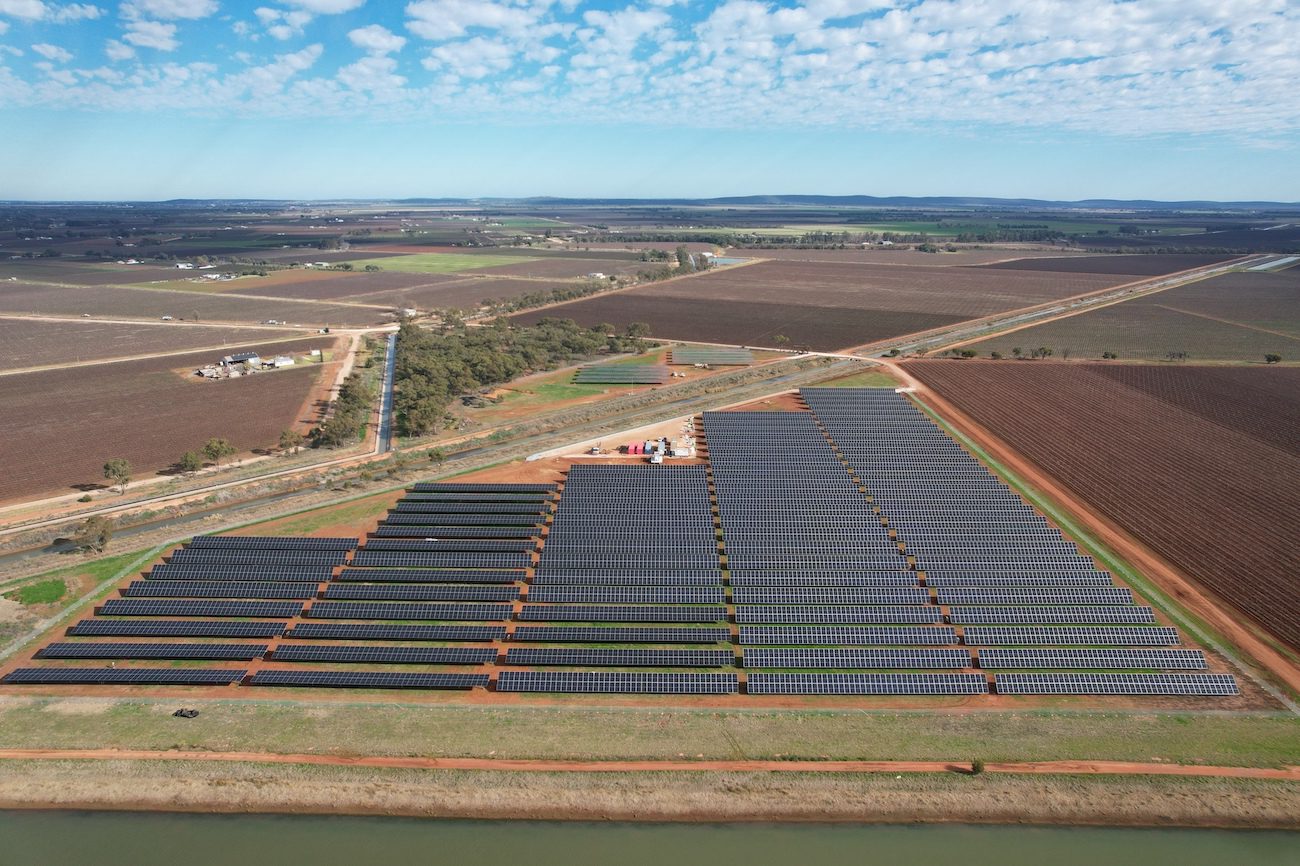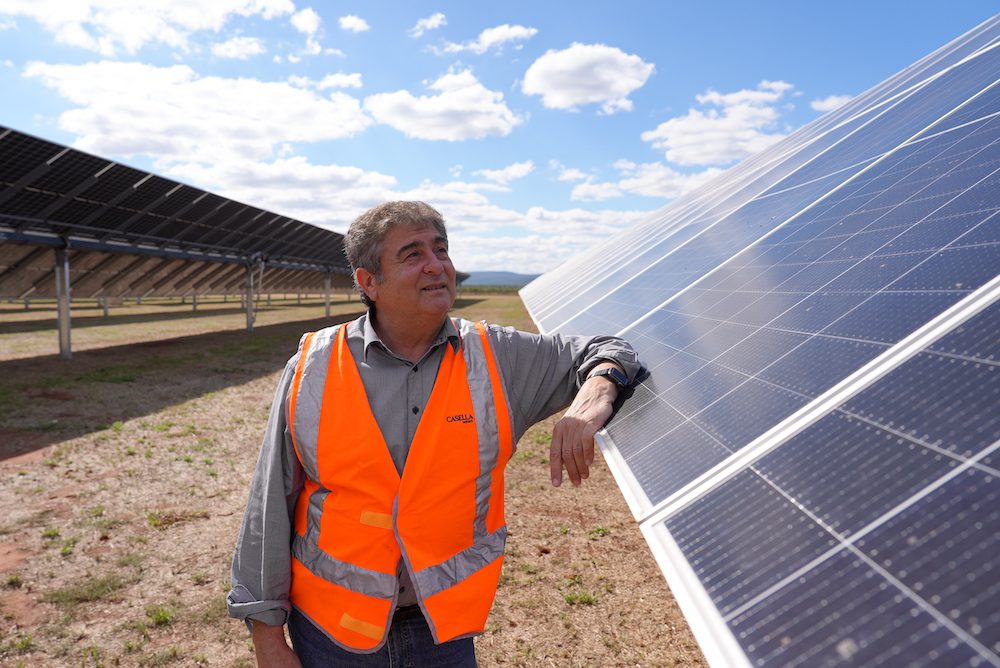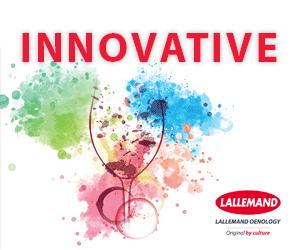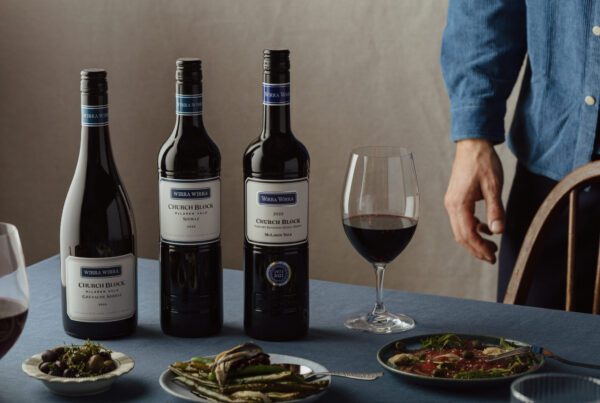
Casella Family Brands has switched on the largest solar power facility in the Australian beverage sector as part of its commitment to net-zero emissions by 2050.
It will provide clean, renewable electricity to the company’s largest winemaking site in Yenda, NSW, home to Yellow Tail wine.
Through 8,730 solar panels, it is capable of generating 11.53 GWh of clean electricity per year.
This will offset 7,800 tonnes of greenhouse gas emissions, which is enough to meet the electricity needs of about 1,900 Australian homes, or equivalent to planting 325,000 trees.
The new solar facility is the first step in the company’s pathway to reducing net-zero GHG (greenhouse gas) emissions by 50 percent by 2030, and 100 percent by 2050.
Casella has measured its Scope 1 and Scope 2 GHG emissions to outline key reduction areas.
The largest source of direct GHG emissions was identified as Scope 2 electricity at the Yenda site which makes up about 65 percent of total Scope 1 and 2 emissions.
The solar farm will provide approximately 35 percent of the Yenda site’s electricity.
The site will use all the clean electricity the solar system produces, reducing the company’s environmental impact.
The facility features a two-panel tracking system incorporating a smart algorithm that optimises the positioning of the solar panels to allow for maximum sun exposure and energy generation year-round.
It will also power Casella’s on-site brewery, home of the Australian Beer Company and its brands Yenda Brewing Co., Son of a Nun and Pressman’s Cider.
Casella has also invested in a second solar system which will provide clean energy to power the wastewater treatment plant and is capable of generating 890.47 MWh of electricity per year.
Consisting of 936 panels, it boasts 20-degree fixed tilt mounting selected for maximum generation and will contribute approximately 30 percent of the facility’s electricity needs.

John Casella at the company’s new solar facility at Yenda. Photo: Vince Bucello.
John Casella says, “I’m extremely proud to unveil our investment in clean electricity through our two new solar systems.
“As well as reducing our footprint, we are making a direct contribution to the Australian wine industry’s GHG emissions reduction goals via the products we make and supply, as we all strive to ensure a sustainable global wine sector.
“As a family-owned business, we’re committed to playing a role in ensuring the resilience of the Australian wine industry for generations to come.
“This includes investing in the regions where we operate, supporting our growers during challenging market conditions and making strategic decisions to ensure our business is set up for long-term success.”
In September 2023, Wine Australia released an Emissions Reduction Roadmap for the Australian grape and wine sector.
Wine Australia CEO Dr Martin Cole says Casella’s new solar farm is another signal of the recognition from Australian grape and wine businesses to act now towards a lower carbon future for all.
“We know that sustainability is an increasingly high priority for consumers, and Casella’s strong actions to reduce their emissions are an extremely positive step towards the sector’s emissions reduction goals,” Cole says.
“This is an important investment for Casella and the Riverina region and supports the broader sector’s work to safeguard the future of Australian wine.”
The net zero targets are part of Casella’s full spectrum, strategic sustainability plan, which considers the company’s impact on the planet, its people and communities, and its products.
As well as utilising renewable energy, the company is looking at other ways to improve its energy usage, including the optimisation of wastewater treatment and displacing traditional fuel with biogenic energy and waste from the production process.
John Casella says, “Our net-zero targets directly support global climate goals, as well as those of the Australian wine industry, our global customers and distributor partners.
“This is also a positive step for our consumers as we know they increasingly care how the products and brands they purchase are made.”
Both solar facilities were developed and constructed by Australia’s leading engineering, procurement and construction company, Next Generation Electrical.
The large system is located 3.5km from the winery site in Yenda.
With land holdings across the Riverina, Casella was fortunate to have an 11-hectare plot that was not suitable for agricultural purposes and after a biodiversity assessment and Aboriginal heritage due diligence assessment, it was deemed well suited to host the solar farm development.
Casella owns Yellow Tail, Peter Lehmann Wines, Brand’s Laira of Coonawarra, Baileys of Glenrowan and Morris of Rutherglen.
Main photo credit: Chris Pearce.
Related content













Recent Comments